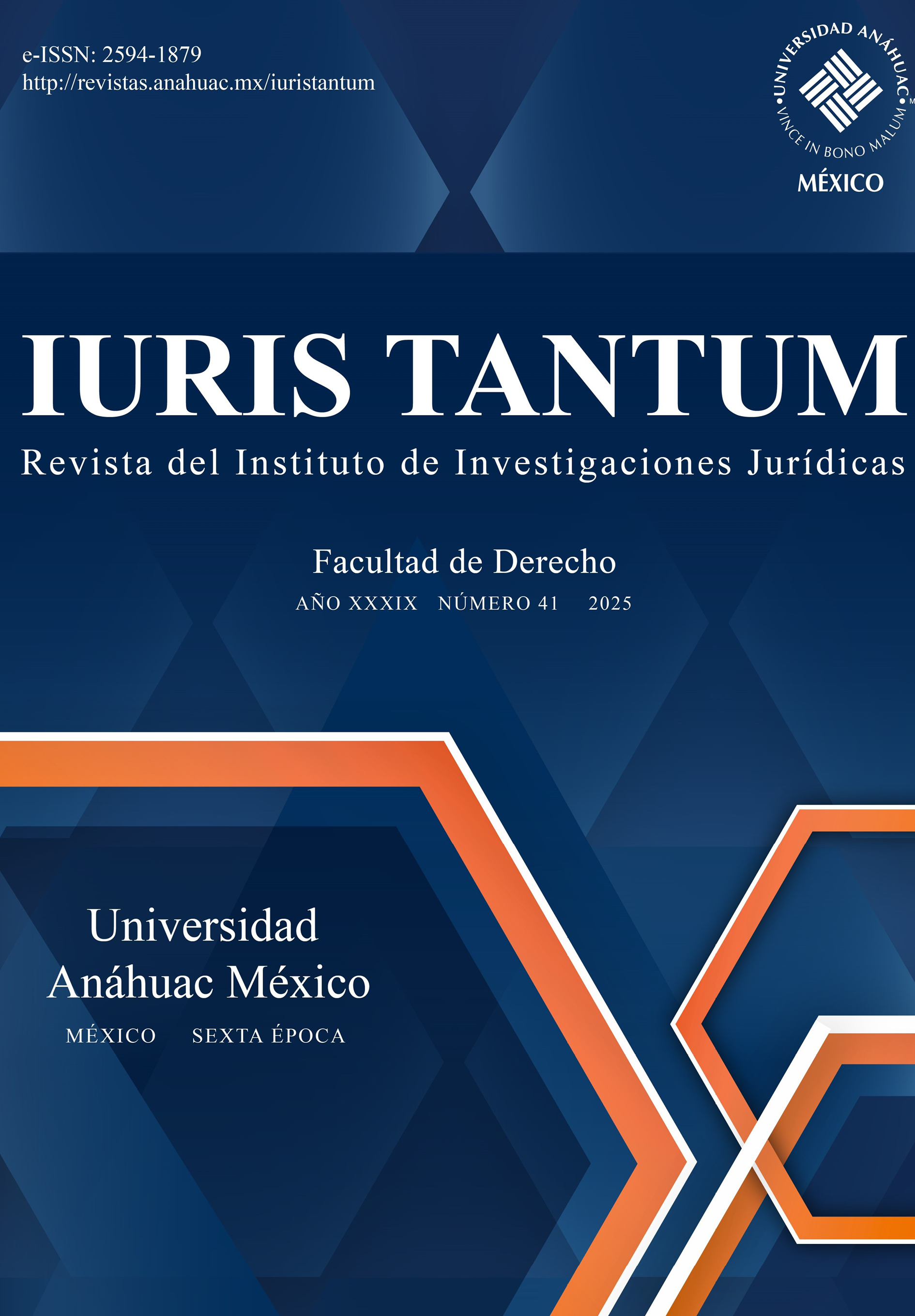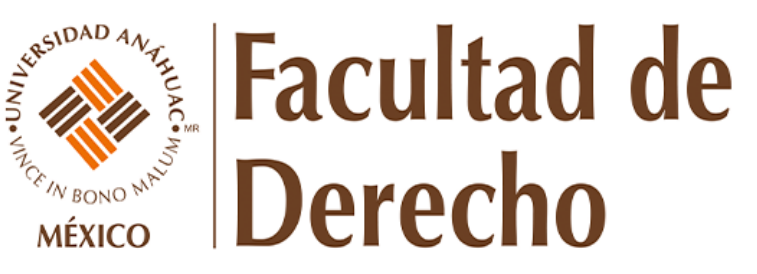Evaluation of smart contract in Mexico: Implications for Digital Law
DOI:
https://doi.org/10.36105/iut.2025n41.01Keywords:
blockchain, smart contracts, contract law, private international lawAbstract
Smart contracts result from recent technological innovation, challenging traditional contractual structures on a global scale. In the Mexican context, the main challenge lies in the absence of specific provisions that explicitly regulate this legal figure. In this regard, the objective of the present research was to evaluate the extent to which the current legal system allows for their implementation. A qualitative methodology was used, based on normative and doctrinal analysis. As a result, it is concluded that a specific legal framework for smart contracts in Mexico is unnecessary; it is sufficient to adapt existing regulations according to flexibility and technological adaptation principles.
Downloads
References
ALBORNOZ, Mercedes, “Rigidez y flexibilidad: derecho aplicable a los contratos internacionales en ausencia de elección”, Revista Anales de la Facultad de Ciencias Jurídicas y Sociales. Universidad de la Plata, vol. 51, núm. 18, 2022. DOI: https://doi.org/10.24215/25916386e088
AL-BREIKI, Hamda et. al., “Trustworthy Blockchain Oracles: Review, Comparison, and Open Research Challenges”, IEEEAccess, 2020. DOI: https://doi.org/10.1109/ACCESS.2020.2992698
BARRÓN, Marisol et al., “Estudio exploratorio sobre la tecnología blockchain aplicada en cadenas de suministro”, Instituto Mexicano del Transporte, Publicación técnica, núm. 646, 2021.
CAMARGO, Javier, Los actos jurídicos celebrados por medios electrónicos y su valor judicial, México, UACJ, 2016.
Coordinación de Estrategia Digital Nacional, “Modelo de Gobernanza para implementar la Red Blockchain México”, 2018, disponible en: https://www.gob.mx/cms/uploads/attachment/file/415646/Consolidacio_n_de_Comentarios_Consulta_Pu_blica_-_Modelo_de_Gobernanza__1_.pdf?utm_source=chatgpt.com (fecha de consulta: 26 de noviembre de 2024).
DE MIGUEL ASENCIO, Pedro, “La futura Ley de Datos de la Unión Europea”, La Ley de la Unión Europea, España, núm. 104, 2022, disponible en: https://docta.ucm.es/rest/api/core/bitstreams/8dbdee7a-5710-4d43-9125-b16501002648/content (fecha de consulta: 09 de diciembre de 2024).
FAIRFIEL, Josua, Servadural, Niloufer, “Governing the Interface Between Natural and Formal Language in Smart Contrats”, Journal of Law, vol. 27, núm. 2.
FERNÁNDEZ, Juan et. al., Derecho de los negocios internacionales, Madrid, España, Iustel, 2013.
Instituto Europeo de Derecho, “Principios sobre tecnología Blockchain, Smart Contracts y Protección de Consumidores”, Austria, 2022.
Law Commission, “Smart Legal Contracts. Advice to Government”, Law Com No 401, 2021, disponible en: https://openresearch-repository.anu.edu.au/server/api/core/bitstreams/bf1d8c23-253f-4c86-ba7f-487d8aad65c0/content (fecha de consulta: 04 de diciembre de 2024).
PEREZNIETO, Leonel y SILVA, Jorge, Derecho Internacional Privado. Parte Especial, México: Tirant Lo Blanch, 2022.
Secretaría de la Función Pública, “Iniciativa BlockchainHACKMX. Reporte de Avances”, https://www.gob.mx/cms/uploads/attachment/file/328774/BlockchainHACKMX__Reporte_de_avances__1_.pdf (fecha de consulta: 16 de diciembre de 2024).
Suprema Corte de Justicia de la Nación, Procesos Legislativos, Exposición de Motivos, México, 29 de abril de 1999, disponible en: https://legislacion.scjn.gob.mx/Buscador/Paginas/wfProcesoLegislativoCompleto.aspx?q=BHGCbWrG7ukiUiW/WEuu/sAk1XOkPc70x/+yLMX8Vbz/jsr4+TzJViqAsfoi5eAASNp0ICYg8J3mfepDA1gwkQ==
SZABO, Nick, “Smart Contracts, 1994”, disponible en: https://www.fon.hum.uva.nl/rob/Courses/InformationInSpeech/CDROM/Literature/LOTwinterschool2006/szabo.best.vwh.net/smart.contracts.html (fecha de consulta: 03 diciembre de 2024).
SZABO, Nick, “Smart Contracts: Building Blocks for Digital Markets”, Extropy, 16, 1996, disponible en: https://www.truevaluemetrics.org/DBpdfs/BlockChain/Nick-Szabo-Smart-Contracts-Building-Blocks-for-Digital-Markets-1996-14591.pdf (fecha de consulta: 04 de diciembre de 2024).
ORTEGA, Alfonso, Smart contract y Derecho Internacional Privado, Navarra España, Thomson Reuters Aranzadi, 2019.
RUIZ, Raúl, “Retos de los Smart Contracts para el Derecho Internacional Privado”, Tesis de Maestría, Facultad de Derecho, Universidad de Alicante, España, 2020.
TAPSCOTT, Don y TAPSCOTT, Alex, Blockchain revolution. How the Technology Behind Bitcoin and Other Cryptocurrencies Is Changing the World, Nueva York, Penguin, 2016.
VILALTA, Aura, Smart legal Contract y blockchain. La contratación inteligente a través de la tecnología blockchain, Madrid, España, Wolters Kluwer, 2019.
VITALIK, Buterin, “Ethereum: A Next-Generation Smart Contract and Decentralized Application Platform”, 2013, disponible en: https://ethereum.org/en/whitepaper/ (fecha de consulta: 04 de diciembre de 2024).
World Economic Forum, “Regulatory Technology for the 21 Century”, White Paper, 2022, disponible en: https://www3.weforum.org/docs/WEF_Regulatory_Tech_for_the_21st_Century_2022.pdf (fecha de consulta: 20 de marzo de 2025).
ZIMMERMANN, Anton, “Blockchain Network and European Private International Law”, Conflict of law, 2018, disponible: https://conflictoflaws.net/2018/blockchain-networks-and-european-private-internationale-law/

Downloads
Published
Issue
Section
License
Copyright (c) 2025 Wendolyne Nava González

This work is licensed under a Creative Commons Attribution-NonCommercial-ShareAlike 4.0 International License.
Iuris Tantum is distributed under international Creative Commons Attribution-NonCommercial-ShareAlike 4.0 International License.
The author keeps the property rights with no restriction whatsoever and guarantees the magazine the right to be the first publication of the work. The author is free to deposit the published version in any other medium, such as an institutional archive or on his own website.
































